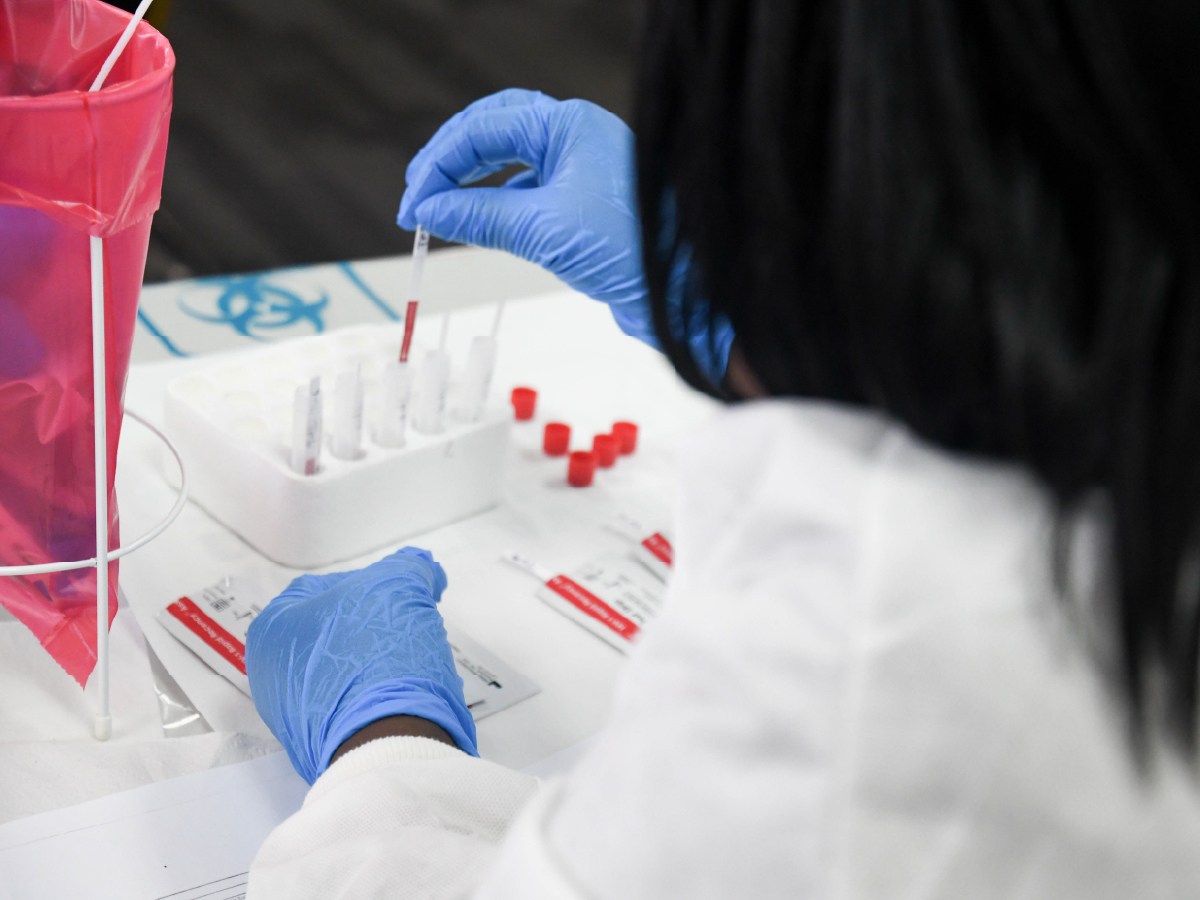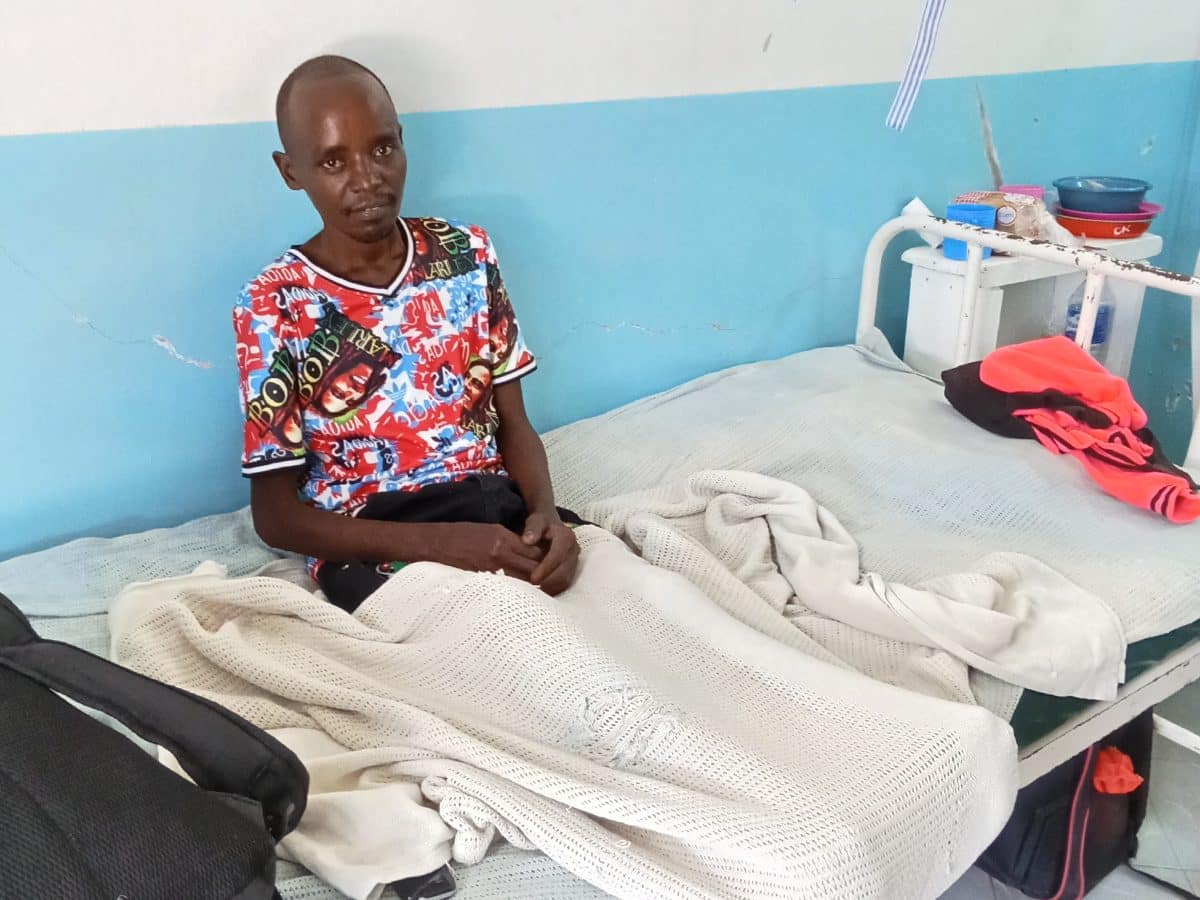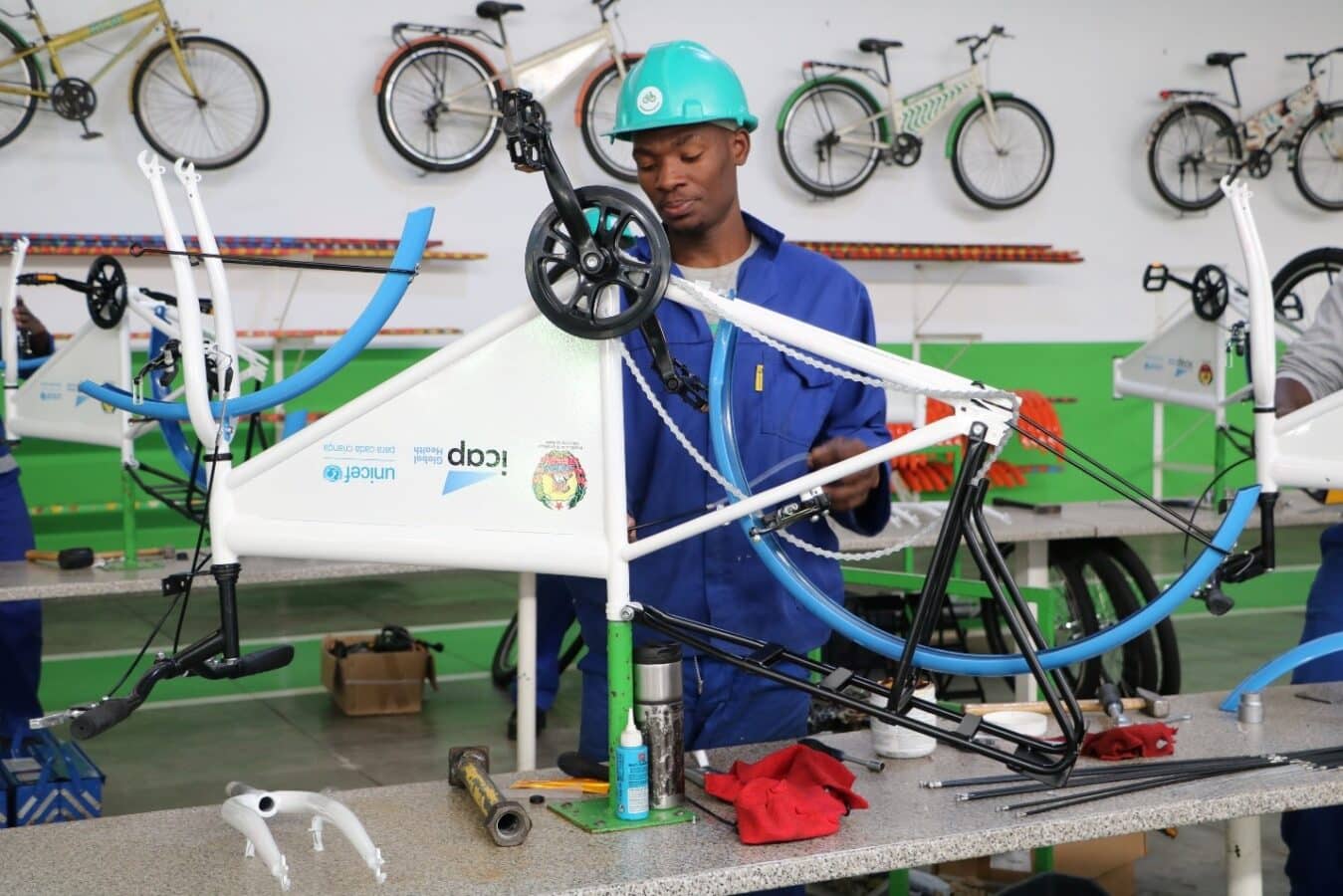In support of national efforts to improve diagnostic services for patients accessing care at public health facilities in Eswatini, ICAP at Columbia University developed a digital link, or interface, enabling seamless data exchange between public health facilities and the country’s network of 22 laboratories. The initiative successfully reduced turnaround time for diagnostic services and, ultimately, helped to ensure faster initiation of treatment for conditions including HIV and tuberculosis (TB).
Following a successful pilot implementation at nine health facilities, the interface is currently being rolled out to all 102 Ministry of Health facilities and labs across the country. “Especially in a country like Eswatini where our adult HIV prevalence is nearly one in three, equipping clinicians with the best, most up-to-date information empowers them to better care for patients,” said Ruben Sahabo, MD, country director for ICAP in Eswatini.
Facilities currently leveraging the interface to expand access to patient data have seen a positive impact on a range of health services. Rather than waiting for printed laboratory test results to arrive, clinicians now receive results electronically as soon as they are approved for entry in the laboratory information system. Test orders can now also be placed electronically, using unique barcode identifiers that are matched with the correct samples at the laboratory. The interface also reduced turnaround time for returned diagnostic results and have dramatically reduced common logistical bottlenecks, such as stockouts of printed forms or sorting problems at laboratories.
Chief medical laboratory technologist at the Eswatini Health Laboratory Service (EHLS), Sindisiwe Dlamini, summed up the value of the interface, noting that, “It eases the burden for laboratories as it avoids paperwork, removes transcription errors, reduces printing costs, and above all, provides clinicians with results in a shorter time to manage their patients.”
The development of the interface was a cornerstone of ICAP’s work in partnership with the Eswatini Health Laboratory Service (EHLS), the Ministry of Health, and national strategic information partner FEI Systems to improve laboratory operations for optimal patient care and treatment, as well as disease surveillance and response. The project was made possible by funding from the U.S. President’s Emergency Plan for AIDS Relief (PEPFAR) through the Centers for Disease Control and Prevention (CDC). The project, which completed operations at the end of 2020, provided technical assistance to enhance laboratory systems through the implementation of laboratory quality management systems and accreditation; external quality assessment through proficiency testing of all laboratory testing areas; capacity building of the laboratory workforce; improved access to testing through decentralized laboratory services; and enhanced national sample transport systems.
A global health leader since 2003, ICAP was founded at Columbia University with one overarching goal: to improve the health of families and communities. Together with its partners—ministries of health, large multilaterals, health care providers, and patients—ICAP strives for a world where health is available to all. To date, ICAP has addressed major public health challenges and the needs of local health systems through 6,000 sites across more than 30 countries.








